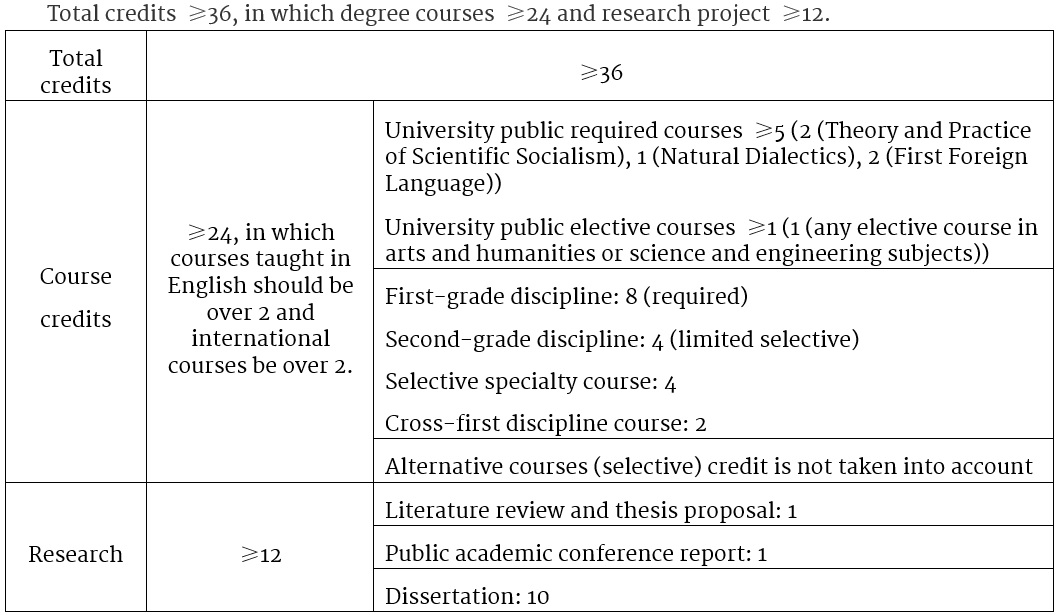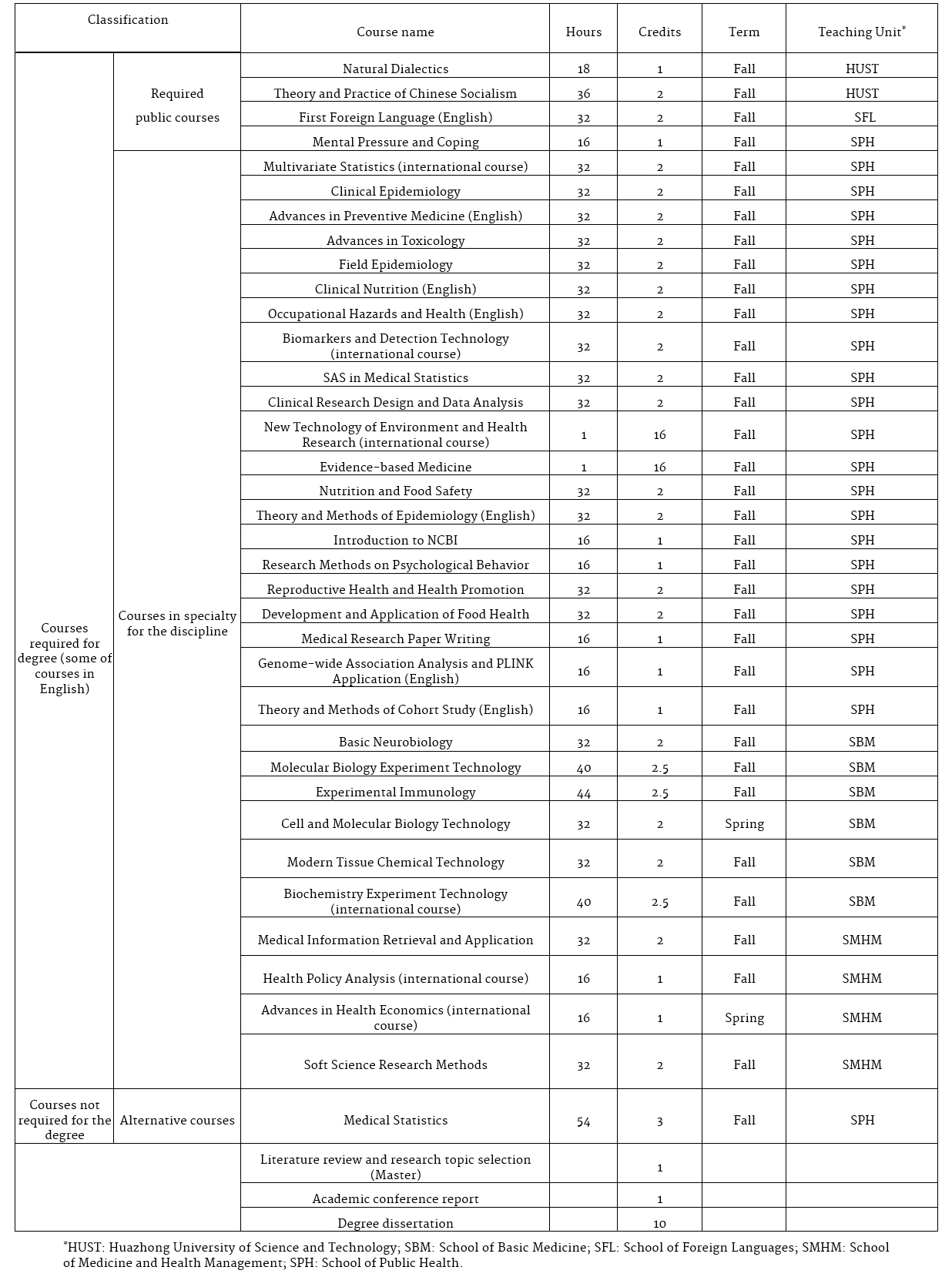
I. Educational Objectives
This program aims at cultivating advanced professionals in public health sectors and departments who are well trained with professional expertise. The specific qualifications are:
1. General arts education, the graduates stand up for our government, commit hemselves to care for and serve the country and people in preventive medicine field, obey laws and rules.
2. Diligence and commitment to academic study and research.
3. Basic theories, systematic knowledge and advanced practical skills in the area of preventive medicine. Familiar with advances in the specialty field and competent to undertake employment in teaching or research. Comprehensive capacities scientific research and innovation.
4. Proficiency in English and able to read research literature and basic listening, speaking and writing.
5. Soundness in both body and mentality.
Specialty and Research Directions
Preventive medicine is a first-grade discipline in the science of medicine, consisting of seven second-grade disciplines (specialties).
1. Epidemic diseases and public health statistics
Research directions: methods and application of biostatistics, infectious diseases and chronic epidemiology, molecular epidemiology, social factors and health, health education, medical insurance.
2. Environmental health
Research directions: environmental monitor technology, environmental enome and protein, occupational hygiene and health, environment and occupation related epidemic diseases, environmental microbiology, environment related diseases, environmental toxicological and biological marker, trace elements and health, thermal biology and molecule toxicology, work physiology and ergonomics, water pollution and health, drinking water cleaning technology.
3. Nutrition and food hygiene
Directions: molecular nutrition, nutrition, diet and chronic diseases, maternal and child nutrition.
4. Adolescent health and maternal and child health care
Research directions: children and teenagers’ physique and health, maternal and child health care, children and teenagers’ psychology and psychological health.
5. Health toxicology
Research directions: neurotoxicology, hygienic toxicology, environmental toxicology.
6. Health inspection and quarantine
Research directions: biomedical monitoring technology, microbiological analysis and application, chemical inspection technology, real-time analysis and monitoring, biological sensors.
7. The food safety and management
Research direction: food safety and management.
8. Social medicine and health service management
Research interests: health services research and evidence-based health policy, medical security system.
II. Duration and Cultivation Mode
Thedurationof full-time master program is three years.
Credit Requirements and Composition

Curriculum and Credits Allotment

III. Research and Dissertation
1. Students are required to read research literature and find the research topic in the first term and prepare their research topic and finish their thesis proposal at the end of the first semester or at the beginning of the second term.
The students are required to be assessed in a comprehensive examination at the end of the first year, in which their courses study and research progress will be assessed.
2. Research training
Multiple approaches adopted, including supervisor guidance, collective and individual learning, with a combination of the oretical study withp ractice and research. The focus is on cultivating the graduate students’ independent research ability. Special emphasis is put on self-learning, independent analysis and problem-solving skills.
3. Dissertation and degree awarding
Dissertation is reviewed and degree is awarded in accordance with the relevant regulations of the University.
4. Organization and management
A three-level management system is set up consisting postgraduate students’ affairs office of university, postgraduates’ office in the school and department. Throughout the training, supervisors should care about the graduate students’ thought, study, work and life, keep tracking their research progress.